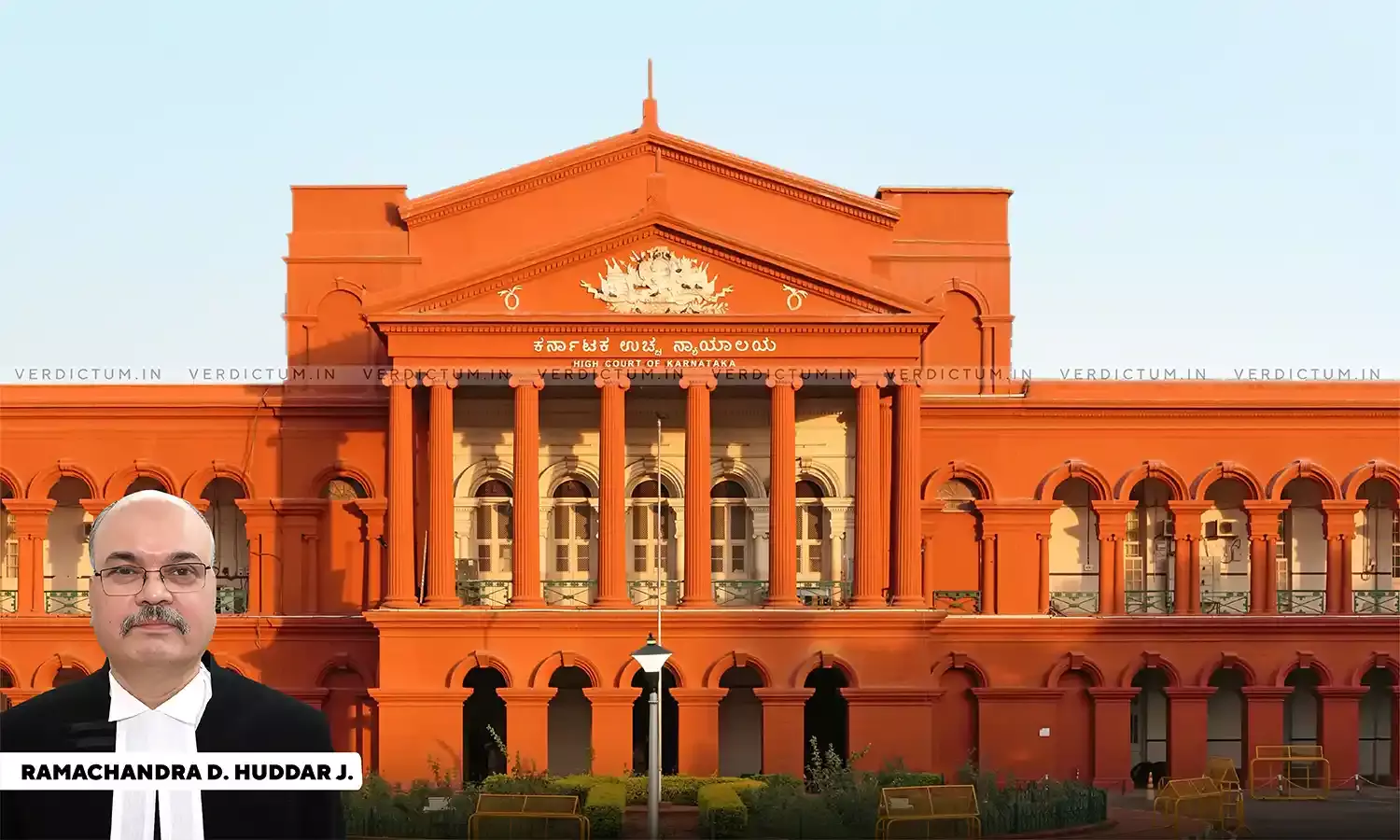Presumption U/S 139 NI Act Cannot Be Rebutted By Merely Raising A Doubt: Karnataka High Court
The Karnataka High Court observed that rebuttable presumption under Section 139 of the Negotiable Instruments Act, 1881 (NI Act) must be by adducing credible evidence and mere raising a doubt is not sufficient.
The Court observed thus in a criminal appeal preferred against the judgment of the Trial Court by which the accused was acquitted from the charges levelled against him under Section 138 of NI Act.
A Single Bench of Justice Ramachandra D. Huddar said, “When she admits her signature on the cheque and issuance of the said cheque, then the presumption definitely arises in favour of the complainant. … As discussed above, the presumption available under the provisions of Section 113 [sic] of NI Act is a rebuttable presumption. The said rebuttable presumption must be by adducing credible evidence. Mere raising a doubt is not sufficient.”
The Bench noted that except setting up of a defence of issuing a cheque, by way of security, no other defence has been set up by the accused which is not duly proved in accordance with law, no direct evidence has been adduced by the accused, and the evidence so adduced by her is not acceptable.
Advocate A.V. Ramakrishna appeared on behalf of the appellant while Advocate M. Mohan Kumar appeared on behalf of the respondent.
In this case, the accused/respondent approached the complainant/appellant and availed a hand loan of Rs. 4,50,000/- to meet her urgent commitments and family necessities. She assured to return the said amount within 6 months and thereafter, when the complainant approached her, she issued a duly filled cheque, mentioning the consideration as the said amount. It was assured by her that on presentation of the said cheque, it will be honoured. When the cheque was presented for encashment, it was dishonoured by the Banker with an endorsement ‘Payment stopped by the Drawer’ by issuing a memo.
As a result, the complainant issued a legal notice against the accused to pay the cheque amount. Despite the service of notice, accused did not pay the amount or issued any reply to the notice. She committed an offence under Section 138 of NI Act and hence, a private complaint was filed by the complainant against her under Section 200 of the Criminal Procedure Code (CrPC). The Trial Court concluded that a doubt arises in the case of the prosecution with regard to the very transaction stated by the complainant and therefore, it acquitted the accused. Being aggrieved, the complainant approached the High Court.
The High Court in view of the above facts remarked, “Once the complainant discharges the burden to prove that Ex.P1 the cheque was issued by the accused for discharge of debt, the presumption arises under Section 139 of the NI Act. Though the accused set upto a defence of issuing a cheque by way of security for loan of Rs.50,000/- but, that defence has remained as defence without any proof. That means, evidential burden which was cast on accused is not properly discharged by her.”
The Court said that the Trial Court committed illegality in passing the impugned judgment of acquittal, that means, it committed a fundamental error with regard to the acts of the case and its approach in holding that the complainant is entitled for Rs. 50,000/- with interest from the accused is a complete erroneous finding and against the facts of the case and law alleged in the complainant.
“Because of this, observation made by the trial Court in the course of the judgment and its concluding finding has caused miscarriage of justice. Therefore, the point raised supra is answered in favour of the complainant/appellant and against the accused. Hence, the appeal deserves to be allowed and the impugned judgment passed by the trial Court in CC No. 5070/2014 dated 13.3.2015 passed by the XXII ACMM, Bengaluru City is liable to set aside”, it added.
Accordingly, the High Court allowed the appeal, convicted the accused, imposed a fine of Rs. 9 lakhs i.e., twice the amount of cheque on her, and set aside the impugned judgment.
Cause Title- Parvathamma M. v. Chandrakala V. (Neutral Citation: 2024:KHC:21452)












